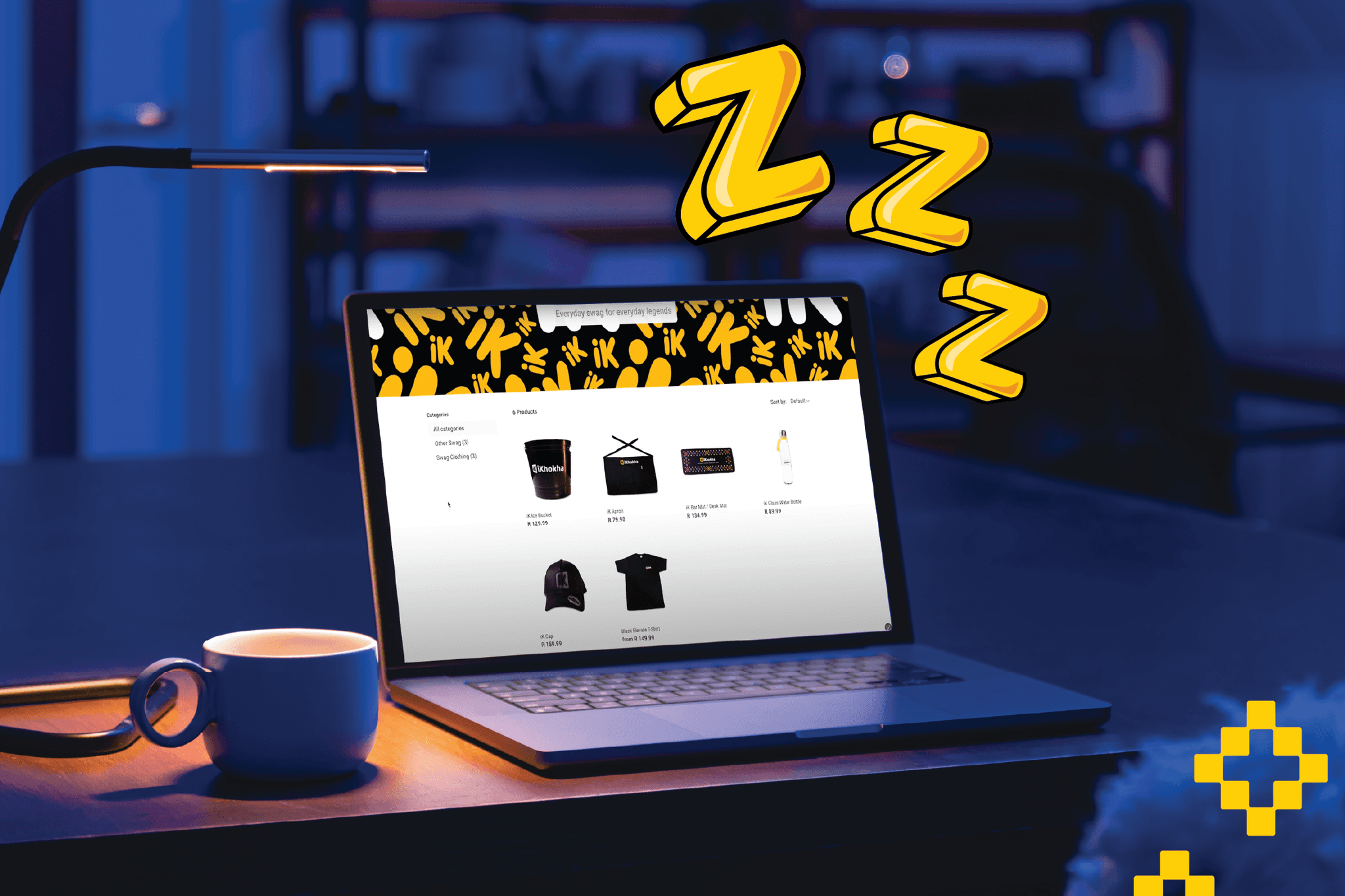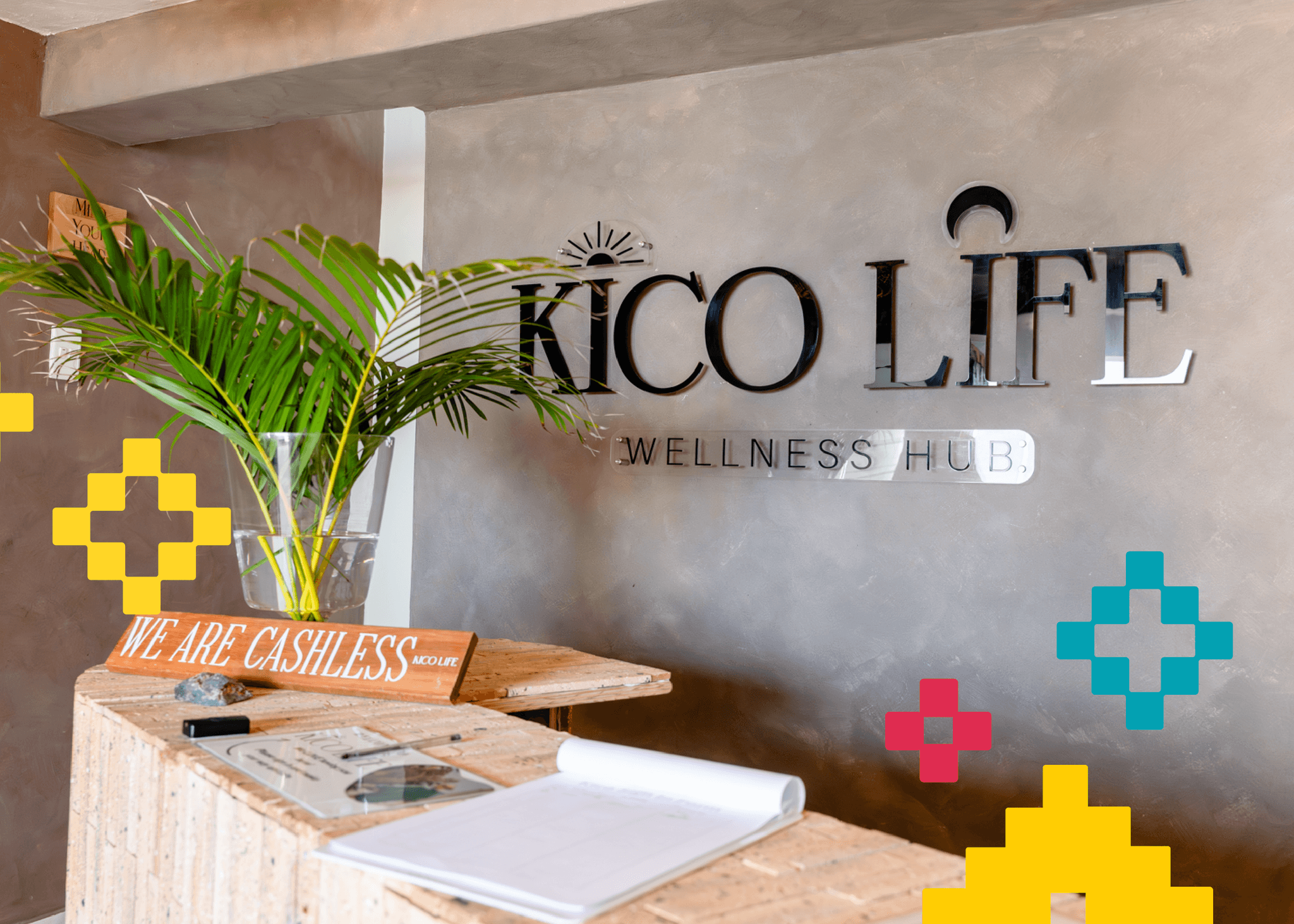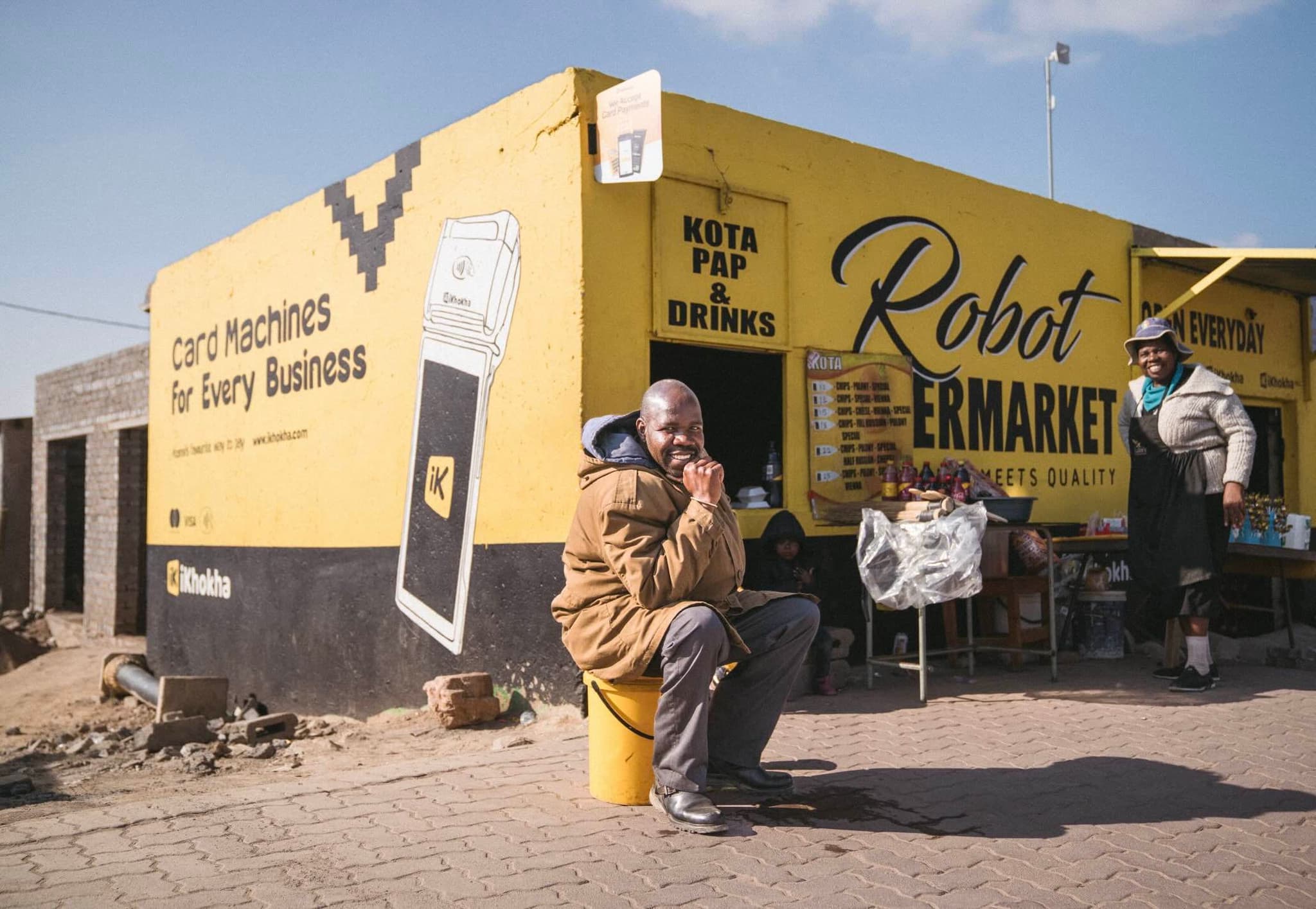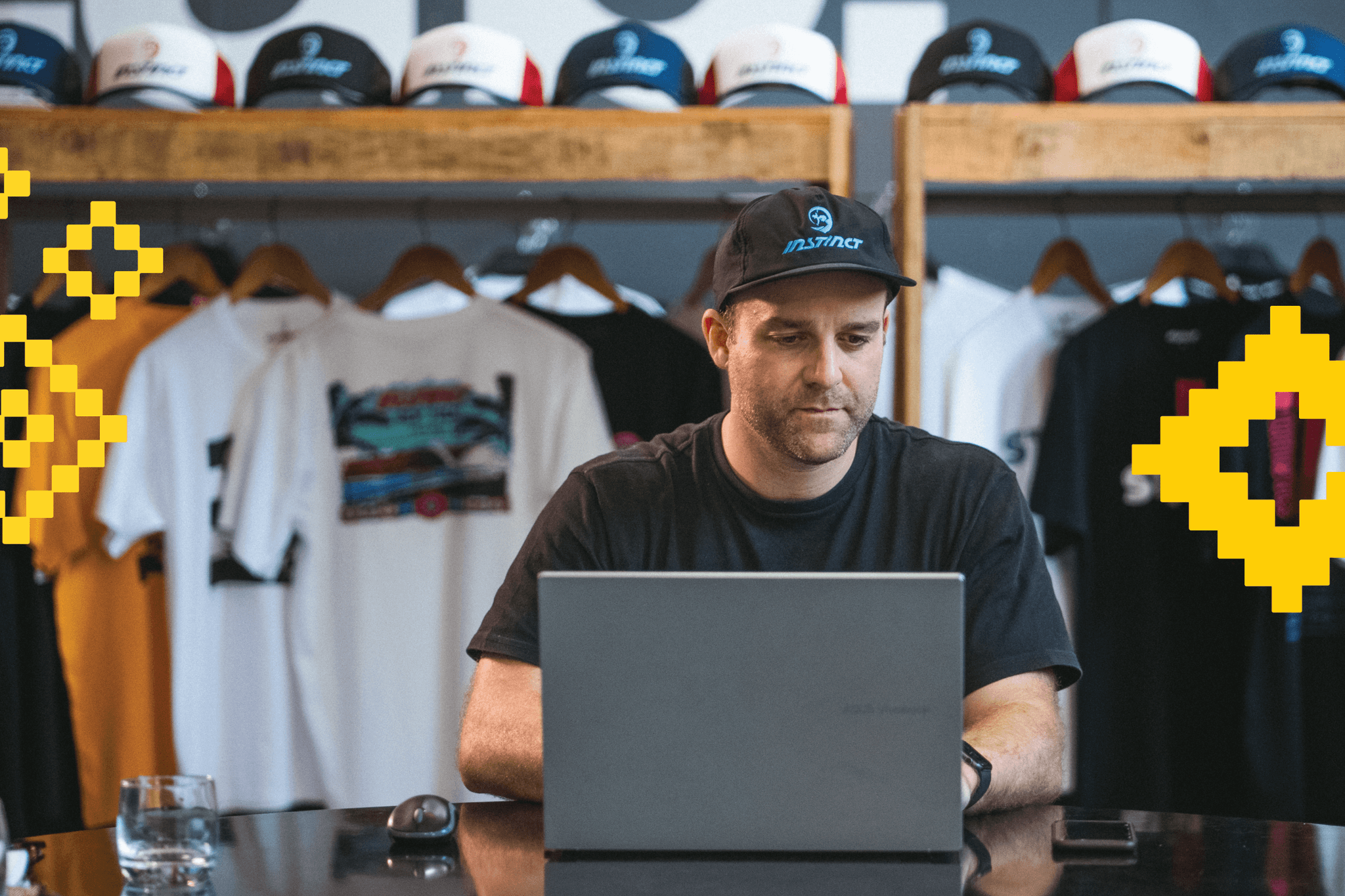
How to Market Your Business Online in South Africa
Learn smart, affordable ways to market your business online. Build trust, grow sales, and reach more South Africans with simple, proven strategies.
Table of Contents
- Introduction
- Step 1: Build a Website That Works
- Step 2: Know Your Audience Before You Post
- Step 3: Use Social Media With Purpose
- Step 4: Create Content That Solves Problems
- Step 5: Build Relationships With Email Marketing
- Step 6: Run Online Ads With Intent
- Step 7: Optimise for Local SEO
- Step 8: Track Your Performance
- Step 9: Add Mobile Payments to Close the Loop
- Bringing Your Online Marketing Strategy Together
So, you’ve set up shop, maybe it’s a spaza, a new clothing brand or a service you’ve been dreaming about. Now comes the real test: getting eyes on your business. Over 50 million South Africans are online in 2025, browsing, buying and discovering new brands every day. If they can’t find you there, you’re missing out. Let’s change that.
This guide shares real marketing moves that work for South African businesses, tried, tested and simple enough to start today.
Step 1: Build a Website That Works
Your website is your digital storefront. It’s the first place people go when they hear about your business, so it needs to make a strong impression fast.
A strong small-business site should:
- Load quickly on mobile.
- Clearly explain what you offer.
- Includes easy-to-find “Order Now,” “Contact Us,” or “Send WhatsApp” buttons.
You don’t need dozens of pages, a homepage, about page, product or service list, and contact form are enough to start. Use real photos and short, clear copy. Avoid clutter, pop-ups, or slow-loading features.
If you sell products or services online, connect your store to iKhokha’s ecommerce plugins for platforms like WooCommerce, Wix, Shopstar and Savvy. You’ll be able to accept card payments online easily and manage payouts in one dashboard.
Step 2: Know Your Audience Before You Post
Don’t rush to post. Spend a little time figuring out who actually wants what you’re selling. A coffee van outside a campus crowd talks differently online than a cleaning company in Joburg North. Once you’re clear on who you’re talking to, your content and spend start working harder for you.
Think about your customers for a moment — who really needs what you sell, where do they spend their time online and what challenges are they hoping you’ll fix?
A Durban hairstylist might use Instagram to reach young professionals. A Gauteng plumber might focus on Google and Facebook to find nearby homeowners.
When you know your audience, your marketing becomes sharper, your content more relevant, and your money better spent.
Step 3: Use Social Media With Purpose
Social media isn’t about posting for the sake of it. It’s where people get to know your business. Show your team, your workday, your customers. That’s how people start recognising and trusting your business.
Start with two platforms your customers already use. In South Africa, Facebook, Instagram, WhatsApp, and TikTok work best for small businesses.
Use each platform intentionally:
- Facebook: Share specials, reviews, and location updates.
- Instagram: Show products, behind-the-scenes moments, and Reels.
- TikTok: Short, engaging videos or tutorials.
- WhatsApp: Send product photos, take orders, and use iK Pay Links for instant payments.
Show your face. Tell stories. Post short tips. Ask questions. People buy from people they trust, not faceless brands.
A small boost budget (even R100) can go far when it’s targeted well. Aim for genuine conversations, replies and DMs say more than a pile of likes.
Step 4: Create Content That Solves Problems
Useful content is still one of the smartest marketing tools you have. Great content answers your customers’ questions and positions you as an expert.
Listen to the questions your customers ask in real life - that’s your content list. If a client keeps asking how to fix something or what works best, turn that answer into a post or short video.
Examples:
- A baker could share “How to Store Bread So It Stays Fresh.”
- A handyman might post “5 Signs Your Geyser Needs Servicing.”
This kind of content builds credibility — and it improves your SEO (search engine optimisation). When you share clear, useful info regularly, Google and customers both start paying attention.
If you use iKhokha’s ecommerce setup, link blog posts to your product pages. That helps drive traffic and sales.
Step 5: Build Relationships With Email Marketing
Email marketing remains one of the most powerful online channels. It’s personal, affordable and keeps your business top of mind for regular customers
Here’s how to get started:
- Add a sign-up form to your website.
- Offer a reason to join (discounts, free guides, or early access).
- Send short, useful emails, one or two per month.
Write like you’re talking to a friend, not a crowd. Share tips, updates, or stories about your business. If you use iKhokha, you can embed Pay Links in emails to make buying effortless.
Step 6: Run Online Ads With Intent
Online ads help you reach more people quickly, but only if you have a clear goal.
Decide what you want before you spend:
- Website visits?
- WhatsApp messages?
- Online sales?
You don’t need thousands. Even R100 on a Facebook or Instagram boost can tell you a lot about what clicks. See which ad brings in real leads, then adjust the next one to double down on what’s working. Keep your message simple and add a strong call to action like “Shop Now” or “Send a Message.”
Retarget people who visited your site but didn’t buy. Those gentle reminders can double your conversions.
Step 7: Optimise for Local SEO
If most of your customers are nearby, local SEO helps them find you faster. It helps people find you on Google Maps and in search results.
Do this today:
- Claim and update your Google Business Profile.
- Add photos, your trading hours, and a short description.
- Ask happy customers to leave reviews.
Use your city or suburb name in your website copy (e.g., “florist in Durban” or “car wash in Soweto”). It helps Google match your business with local searchers.
Step 8: Track Your Performance
Keep an eye on your numbers - they’ll show you what’s working long before your gut does. If your clicks are dropping or one platform’s quiet, shift your effort where you see results.
Use Google Analytics, Meta Business Suite, or the iK Dashboard to track:
- Website visits
- Ad performance
- Sales and customer activity
This data helps you refine your digital marketing plan and focus on what actually delivers results.
Step 9: Add Mobile Payments to Close the Loop
Your marketing brings people in, but how you accept payment completes the experience.
With iKhokha, you can:
- Accept card payments with portable card machines.
- Use iK Tap on Phone to take payments on your smartphone.
- Send iK Pay Links to customers anywhere in South Africa.
Fast, secure payments make your online marketing more effective, every click can lead to a sale.
Bringing Your Online Marketing Strategy Together
Marketing your business online takes patience and consistency, show up often, learn fast and keep improving. You don’t need fancy gear or massive budgets, you need focus and follow-through.
Begin with one or two tactics you can manage and stick with them. Pay attention to how people respond, make small changes, and let your marketing evolve as you learn what works.
With the right mix of content, ads, and local SEO, plus tools like iKhokha’s ecommerce plugins and mobile payment options, you can turn online interest into real sales.
Keep showing up where your customers are. The more visible you are online, the more chances you have to sell.





















